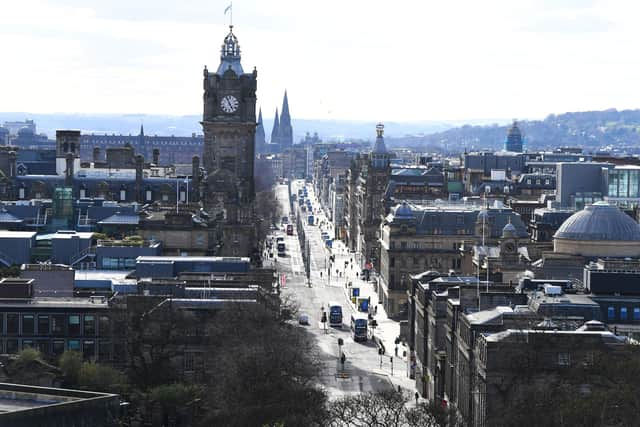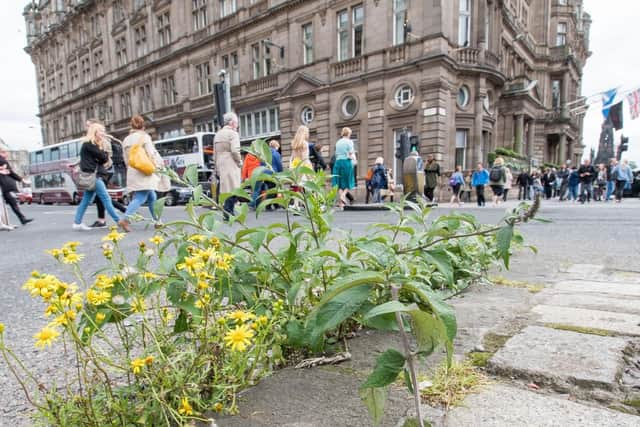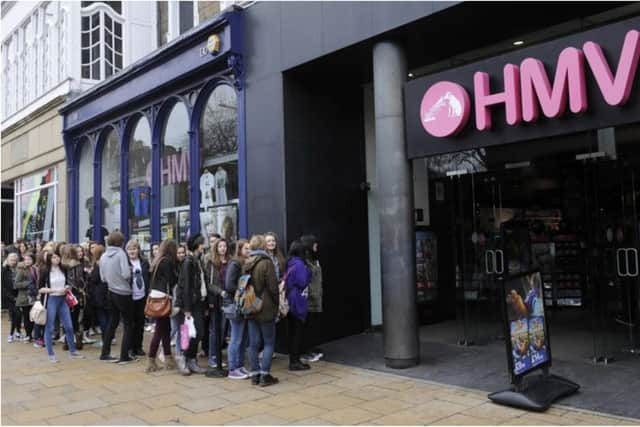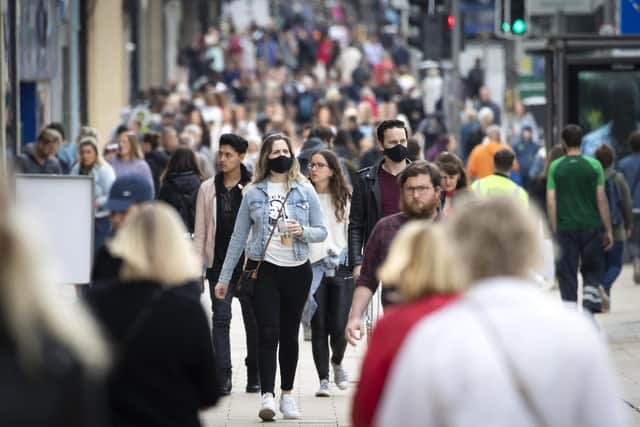Edinburgh orders radical rethink for city centre to tackle rising tide of boarded-up shops
Speaking at an Edinburgh tourism industry conference on Thursday, council leader Adam McVey said officials were actively seeking alternative uses for redundant shop units as part of the new strategy.
He said the council would have to take a more “flexible” approach to key thoroughfares such as Princes Street and George Street to attract both residents and visitors in future to ensure the city centre was “welcoming and safe” in future.
Advertisement
Hide AdAdvertisement
Hide AdAnd he urged landlords of properties in the city centre to drop rents to help prevent the area from being “undermined” over the next few years.


Mr McVey said the council had to “intervene” over the city centre, warning it was on the “cusp” of slipping into serious decline if no action is taken.
The council leader highlighted how planning rules had already been relaxed to tackle the closure of long-running shops on Princes Street.
But he insisted the city had to carefully manage the growth of the tourism industry, to ensure Edinburgh was an authentic "living, working city”, which also protected its built heritage and environment.
He highlighted the crucial role of the city centre as a “cultural hub” and suggested temporary performance spaces, studios and galleries could be created in currently-vacant buildings to boost the culture and creative sectors, as well "bring even more life to the city".


Mr McVey said: “We recognise our city centre has been hit particularly hard, not only by the loss of visitors, but also the loss of many office workers and changing habits of our residents.
“Covid has significantly impacted the model of our city centre economy, just like it has all city centres in the world.
Advertisement
Hide AdAdvertisement
Hide Ad”The future of all Scottish cities as hubs for people to get access to the things they don’t have within their own neighbourhood will continue.
"But there are significant challenges to city centre recovery that we have to lean into. Pre-Covid, we saw a decline in the share of spend as people spent more online.


"The role of the city centre as a cultural hub is undoubtedly going to continue to be important, due to the concentration of our cultural assets.
“We do not yet fully understand the longer term implications of Covid, but we do know that even without Covid the role of the city centre needed to evolve.
"It’s clear that some intervention will be needed to support city centres as that vibrant, innovative, inclusive and sustainable place that we want it to be.
"And we recognise that any response will have to be flexible and adapt to different future scenarios we might face.


“City centres need a strong and vibrant offer to attract visitors, residents and tourists. They need to feel welcoming, safe and pleasant. Vacant units can undermine these aims.
Advertisement
Hide AdAdvertisement
Hide Ad"We’re actively working to find uses for these spaces, both temporarily and long-term, which gives us an opportunity to enhance our city centre even more as a destination.
"Thriving culture and creative sectors can bring vibrancy and even more life to city centres, while enriching the lives of residents and tourists alike.
"And I am keen to see landlords work hard to fill their vacant units now, even if It means them accepting lower rents. It does their asset no good whatsoever to lie empty undermining the street that it sits on.”
Speaking after his conference speech, Mr McVey added: “We cannot go through a situation where we have empty shops with ‘to let’ signs with nothing happening with them.
"We’re not willing to see premier streets like Princes Street and George Street, which means so much to the people of Edinburgh, go into a negative cycle of decline. I think we’re on the cusp of that at the moment.
"There's no point in the council or anyone else sticking their head in the sand and pretending that there’s not going to have to be flexibility in future.
"We want landlords with empty units to recognise they have a responsibility to keep them viable, but also keep their street valuable, by putting things in which drive footfall.
Advertisement
Hide AdAdvertisement
Hide Ad"There has to be a recognition that the rental rates for major units are not realistic now. We’re not taking anything off the table. We want to open doors to the creativity of people.”
Roddy Smith, chief executive of city centre business group Essential Edinburgh, said: “The city centre is going to have to change.
"The opening of the St James Quarter means that there is a decline in the amount of retail space needed on Princes Street and George Street.
“The key things which are preventing that happening are the crippling business rates, landlords wanting to keep rents up and problems getting planning approval for a change of use.
"Landlords are looking to maximise their assets and no-one wants empty units on Princes Street, but they cannot expect them to be filled by retailers who have either gone bust or have moved to the St James Quarter.
“Everybody wants a mix of retail, hospitality, entertainment and culture. If you walk along Princes Street at 8pm, it is virtually dead. There’s hardly anywhere to go for a pint.
“I would love to see a comedy club or some sort of music venue on Princes Street, but the business rates and rents are just completely prohibitive at the moment.”
Comments
Want to join the conversation? Please or to comment on this article.
